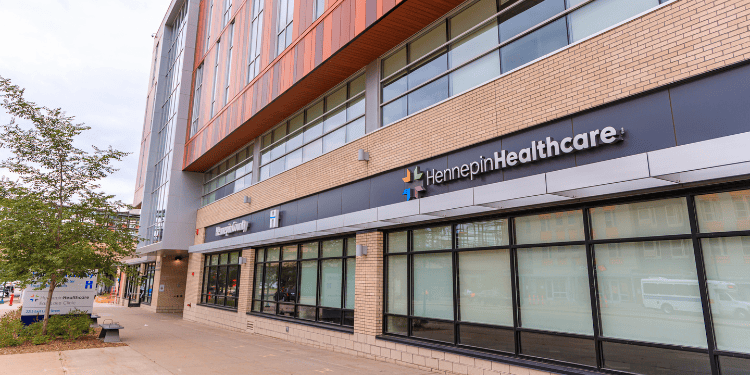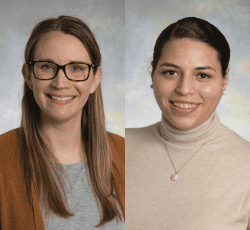“No other place has cared for me as well as here” — how East Lake Clinic is addressing health disparities, one phone call at a time

What would happen to a group of pregnant patients if every pregnant person—regardless of their race, ethnicity, or income—were asked about the support and resources they needed to get ready for their birth? At Hennepin Healthcare’s East Lake Clinic, we’re finding out.
What’s happening: With support from Hennepin County under the Maternal Health Initiative, Hennepin Healthcare’s East Lake Clinic is checking in with every patient who comes to the clinic for prenatal care to offer resources, support, and continued care coordination. Instead of waiting for a patient to ask or for a provider to submit a referral, an on-site community health worker and social worker are reaching out to patients at 24 weeks, 28 weeks, and two weeks postpartum to ask:
- Do they need cribs or car seats?
- Do they have needs around breast-feeding?
- Are they experiencing any physical or emotional abuse?
- How is their mental health?
- Do they have health insurance or need other support?
What we’re finding:

From left to right: Kristen Breuer and Cassandra Brouillette.
When Social Worker Kristen Breuer and Community Health Worker Cassandra Brouillette call patients, they let them they’re not being singled out for something they said in an appointment – everyone’s getting the same call. Kristen says, “Just letting people know it’s for everybody – it can take away a little bit of a barrier in people accessing help or getting help.” The check-ins give patients space and opportunity to share other factors that affect their lives and overall well-being, deepening trust between patients and their care teams.
Multiple check-ins also give patients time to figure out what they need. Cassandra spoke with a patient who seemed overwhelmed and said she didn’t need anything yet. Cassandra left her contact info, and the patient reached out again when she realized she needed a car seat and a Pack and Play.
“She was just super ecstatic,” Cassandra said. “She said, ‘I’m very happy that my baby has a car seat. I’m very happy that she has a place to sleep that’s safe.’ She didn’t really know about SIDS and accidental suffocation and strangulation – so just providing that education, she told me that she felt safer.”
One patient was struggling financially and didn’t realize she could get formula under WIC after her plan to breastfeed didn’t work out.
Another patient said, “Having support and being able to get a crib and baby clothes, I am happy with that, I do need it, thank you all very much. I just want to say thank you all so much, no other place has cared for me as well as here.”
In 2023, 128 patients met with Kristen and Cassandra through trauma-informed screenings and received services and referrals. The patients who provided feedback strongly agreed that meeting with the team members improved their care and made them more prepared and aware of resources for their pregnancy.
Why this work matters: Hennepin Healthcare joins others across the country in recognizing Black Maternal Health Week from April 11 – 17, 2024. There are significant health disparities when it comes to Black maternal and child health:
- According to the Centers for Disease Control and Prevention, Black women are three times more likely to die from a pregnancy-related cause than white women due to factors like healthcare quality, chronic conditions, racism, and bias.
- The Minnesota Maternal Mortality Update reports that even though Black birthing people make up 13% of the birthing population, they make up a disproportionate 26.7% of pregnancy-associated deaths.
Health disparities—for both Black mothers and their babies—are rooted in historic racial inequities that show up in areas like economic stability, physical environment, education, food, safety, and access to health care. These are the same factors the team is working to address through their calls, support, and resources. Of the 128 patients screened in 2023, 13% were Black (African American or African) and 76% were Hispanic (Latino).
“Black maternal mortality is a replication of the violence felt by the black families across our community,” said East Lake Clinic Family Medicine Physician and Medical Director Ndidiamaka Koka, MD. “This initiative that came out of a trauma-informed lens is only one of many necessary steps in making Black families and our communities healthy and thriving.”
As we recognize Black Maternal Health Week, we want to celebrate programs like this that are helping to close those health gaps, a phone call at a time.

